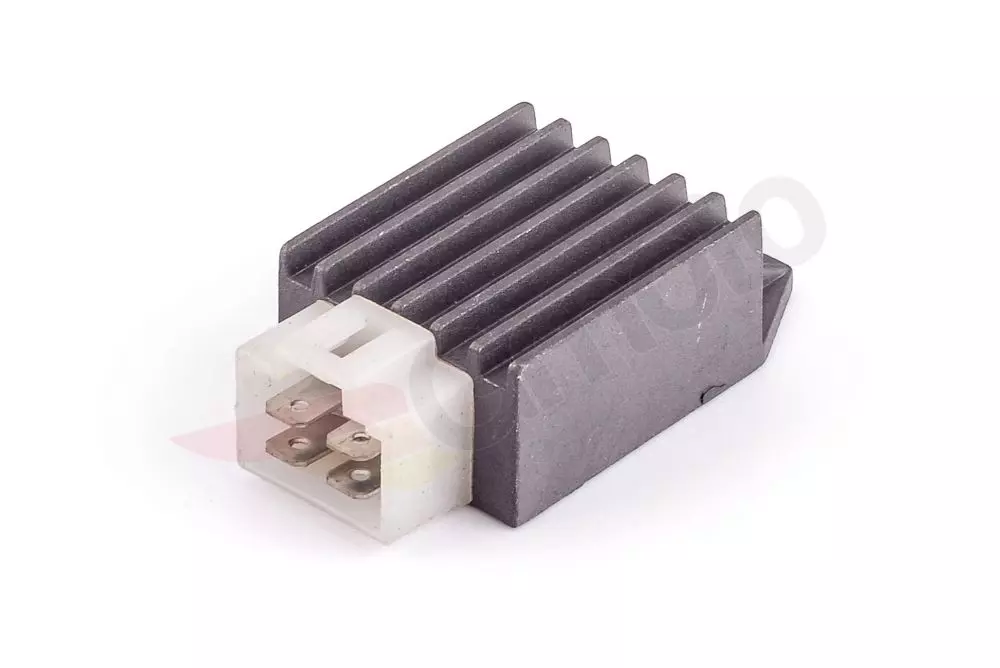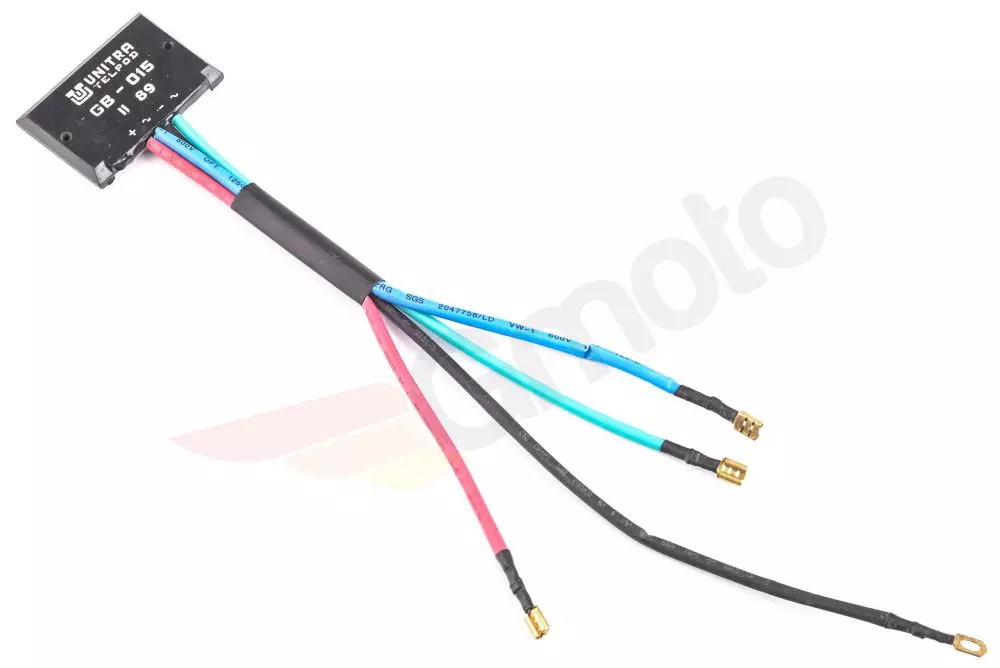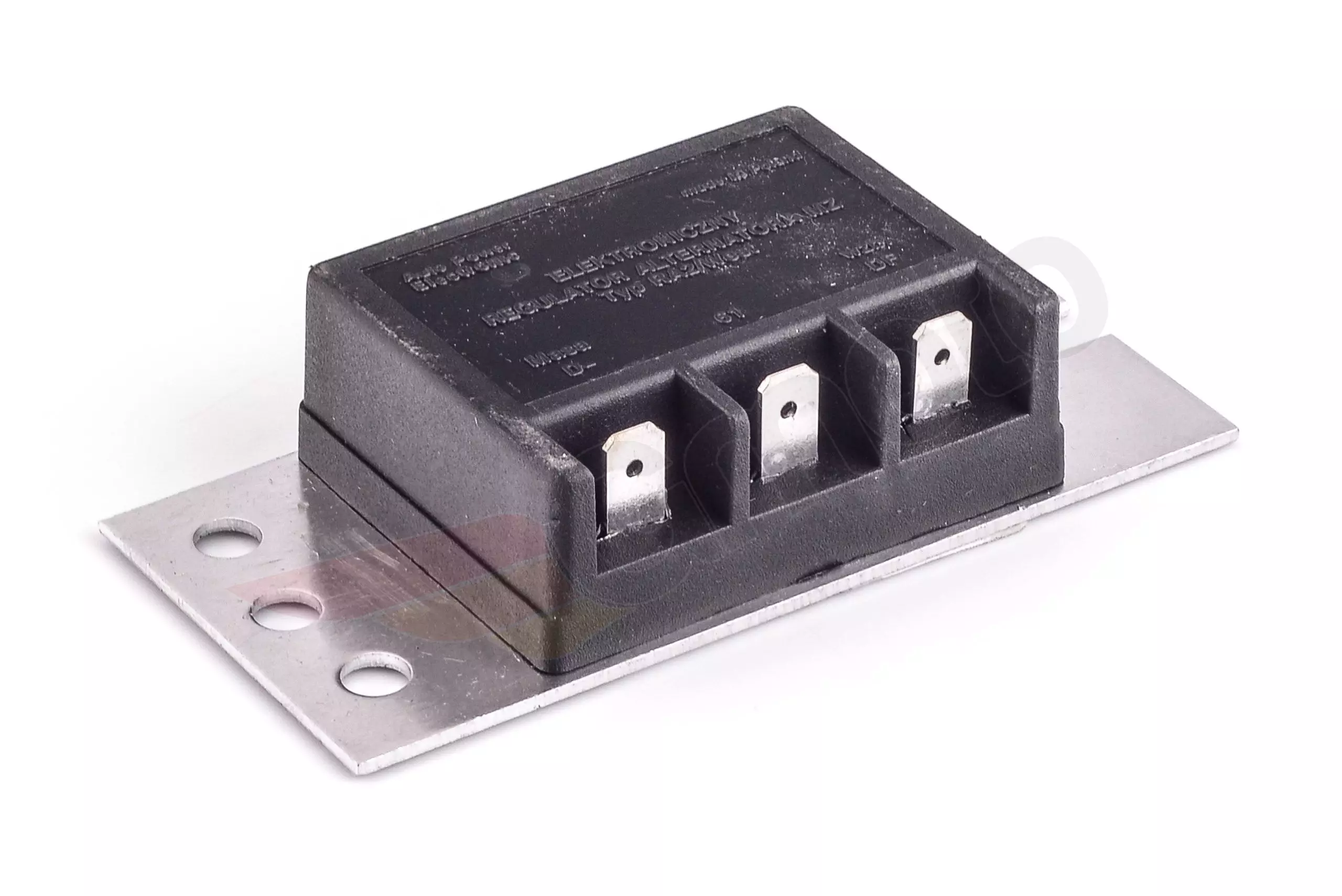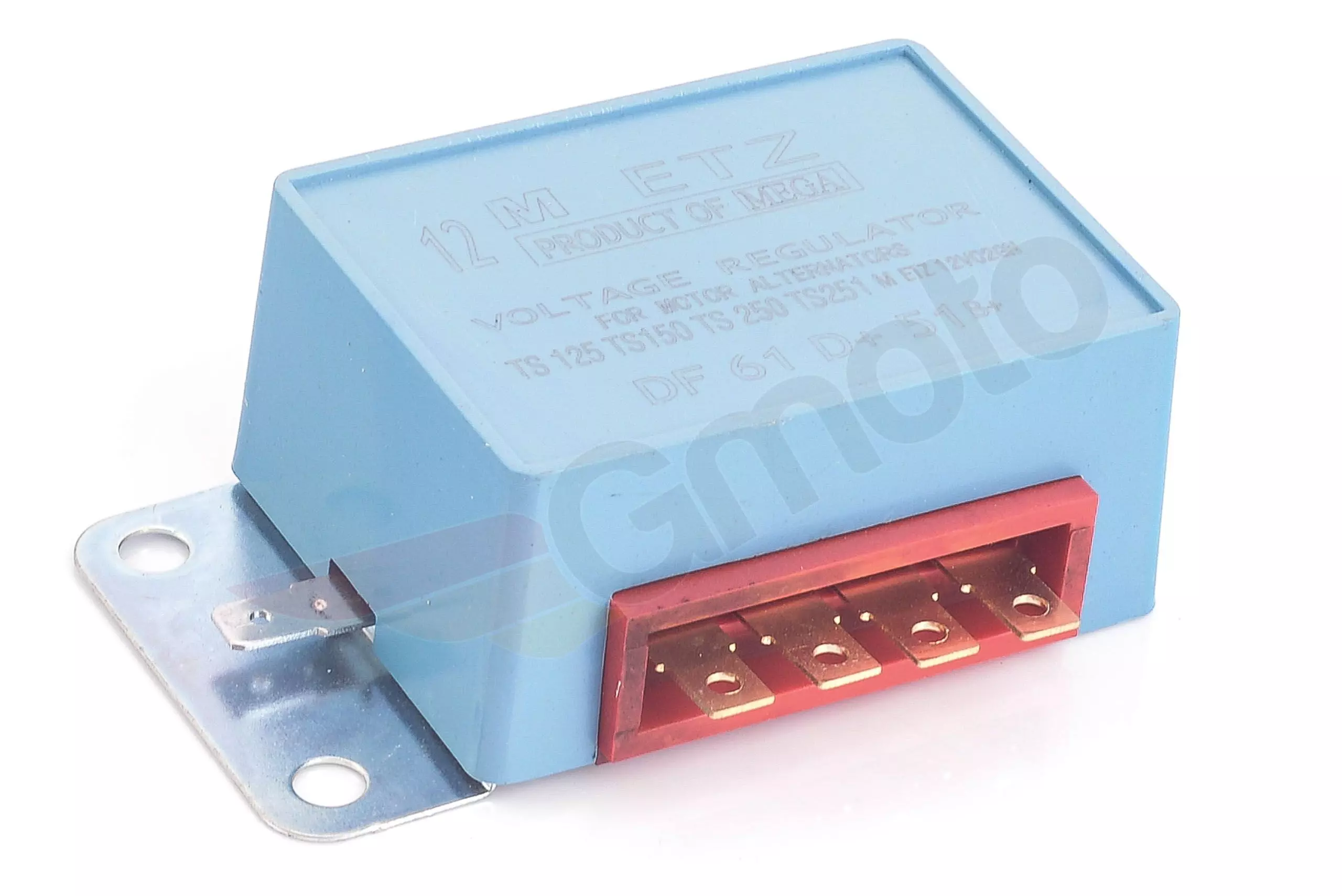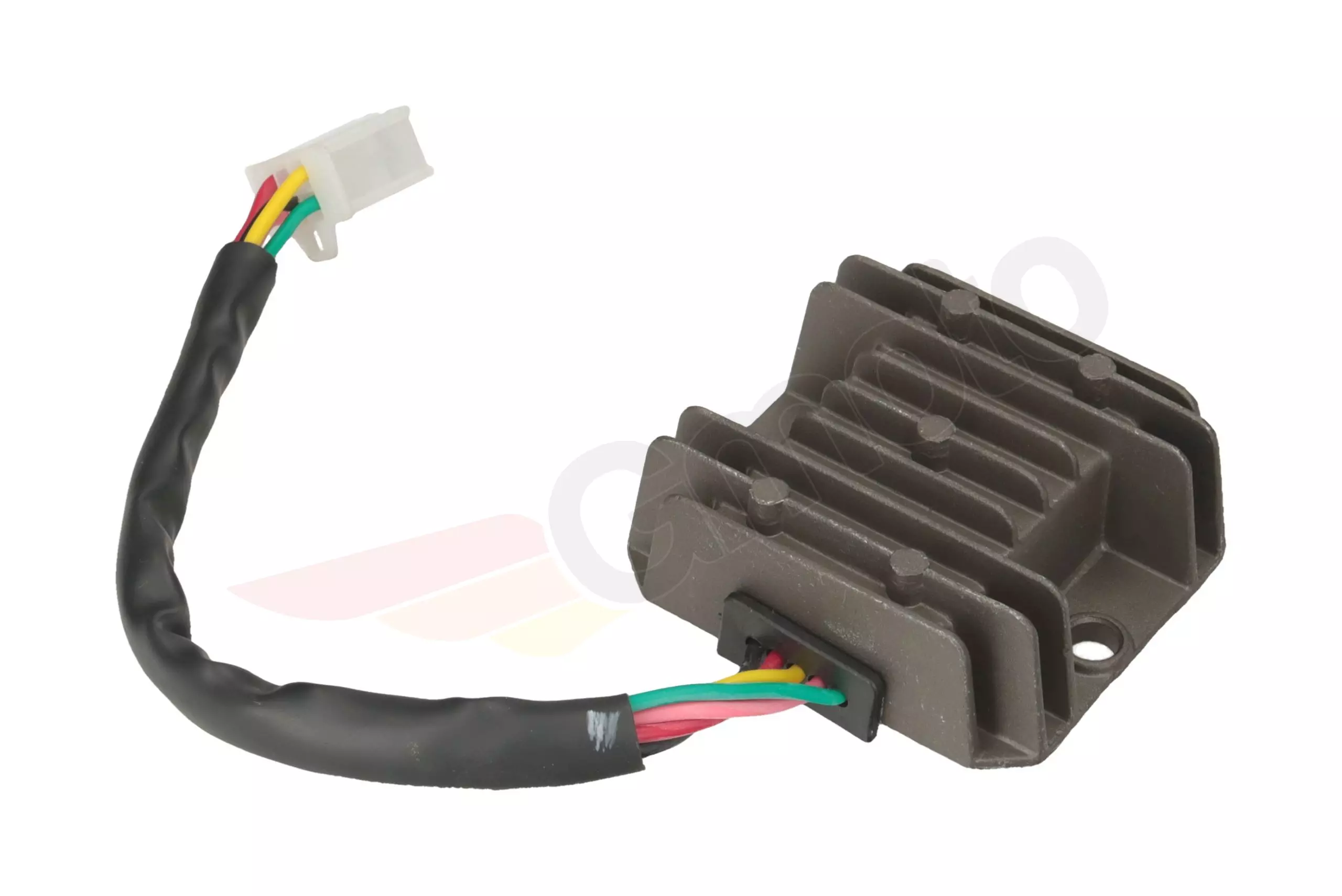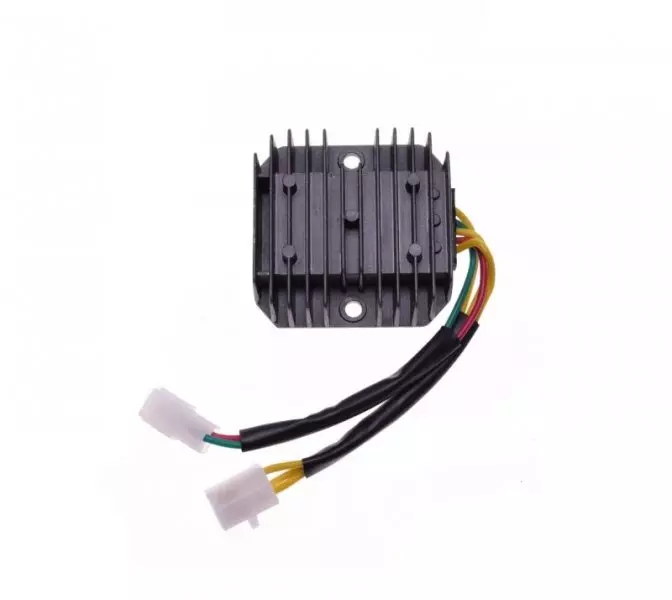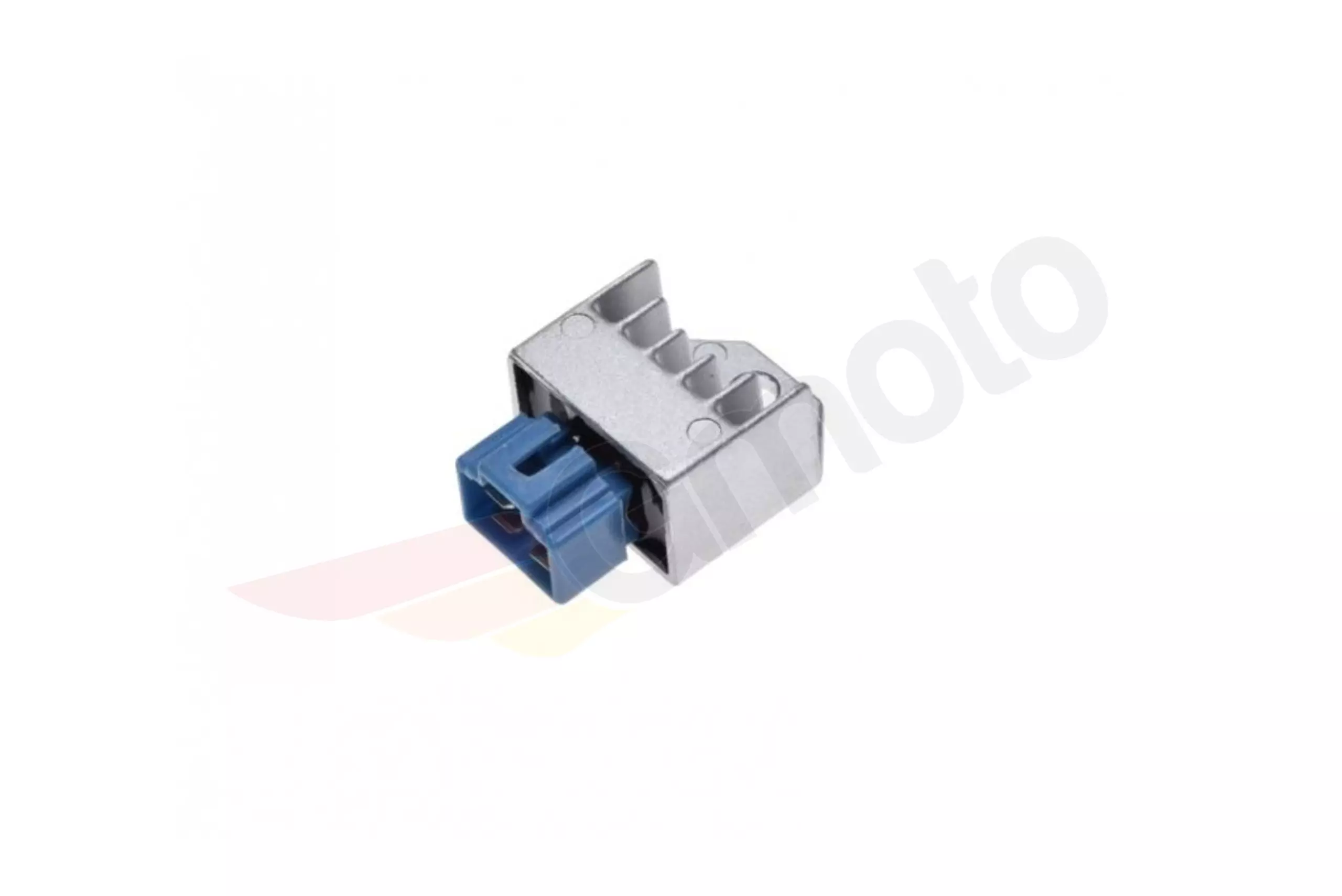Voltage regulator
€169.61 including VAT
Product available on special order. Delivery time may be delayed by 7 days. No returns.
We keep up with your passion!
Delivery tailored to your needs
You have 15 days to make a decision
Voltage regulator
- Regulator/rectifier with MOSFET technology
- Replacement part in original quality
- This new technology has innovated the concept of three-phase ladder regulators. For many years, these devices used silicon-controlled rectifiers (SCRs) to divert excess energy from the alternator to ground so they could maintain a constant battery voltage.
- This was generally accepted and proved sufficient for small and medium-sized alternators in internal combustion engines. However, the new regulator technology based on MOSFET transistors is becoming more popular due to its better performance and many other interesting advantages over SCR.
- The energy demand of modern motorcycles and quads is now increasing due to the use of additional electronic modules, such as the fuel injection system, high-performance lighting, numerous accessories, etc. This means a large amount of energy to be used from the engine. This means a large amount of energy coming out of the alternator and the SCR bypass regulator is no longer able to regulate this.
- The main reason is low energy efficiency, the internal losses of the regulator lead to overheating and premature failure when currents greater than 35A are passed through the regulator. As a result, SCR technology has reached its limit and is therefore not recommended for large vehicles with high energy consumption.
- To solve this previously mentioned problem, it was necessary to reduce losses in the circuit. When the SCR is active (generator current to ground), there is a large voltage drop in the forward direction (about 1.5V @ 35A) because it acts as a power diode. If the current now increases, power loss (e.g., heat) increases in parallel.
- DEVICE POWER LOSS (W) = FORWARD CURRENT (A) X VOLTAGE DROP (V)
- Advantages:
- 3-PHASE SHUNT REGULATOR WITH HIGH ENERGY EFFICIENCY
- OUTPUT POWER OF UP TO 50A
- PRECISE ELECTRONIC BATTERY VOLTAGE CONTROL PREVENTS MISFIRING
- REDUCED HEAT GENERATION LEADS TO LONGER SERVICE LIFE
- STANDBY MODE WITH LOW POWER CONSUMPTION WHEN THE VEHICLE IS NOT IN USE
- Unlike other transistors, MOSFETs can be characterized as voltage-controlled switches because their completely different semiconductor architecture makes them more efficient in their energy use.
- When used, they behave like a low-rated resistor for high currents, conducting all excess current from the generator to ground. As a result, the voltage drop is very low (less than +/-0.2V @ 35A), and power dissipation is drastically reduced. This has a direct impact on reduced heating of the device and long life of the regulator.
- MOSFET technology has been continuously improved in recent years due to its widespread use in consumer and industrial electronics. Semiconductor integration technology offers more power in a reduced space with excellent performance. They also allow faster switching, higher reliability and better control in heavy-duty applications.
- Rectifier diode power is another important factor when it comes to power dissipation. Since all the output current flows through them, they must offer both high robustness and stability, as well as effective current control. Our MOSFET controllers use high-current rectifier diodes with extremely low voltage drop to help prevent overheating and meet the previously mentioned requirements.
- The internal CONTROLLER has been completely redesigned to match the requirements of the MOSFET transistor. The battery voltage is continuously monitored to adjust the output current for different consumption situations. The new electronic controller avoids the use of an ignition wire, reduces the number of connections and simplifies the wiring topology. It also features low standby power consumption, resulting in very little battery discharge when the vehicle is not in use.
- The new technology therefore allows the regulator's output to be increased to 50A while maintaining excellent voltage regulation. Additional benefits such as reduced heating, high efficiency and advanced electronic control make this new regulator the first choice for controlling your vehicle's battery circuit.
Fits to
Questions & Answers
Have a question about this product?
No one has asked a question about this product yet. Be the first and get an answer from our community or experts!



![Valve Shim HLP 9.48mm [2.20mm]](https://gmoto.ie/assets/images/no-photo.png)



